To develop grassroots football and community football, the construction of China's football tower has a long way to go
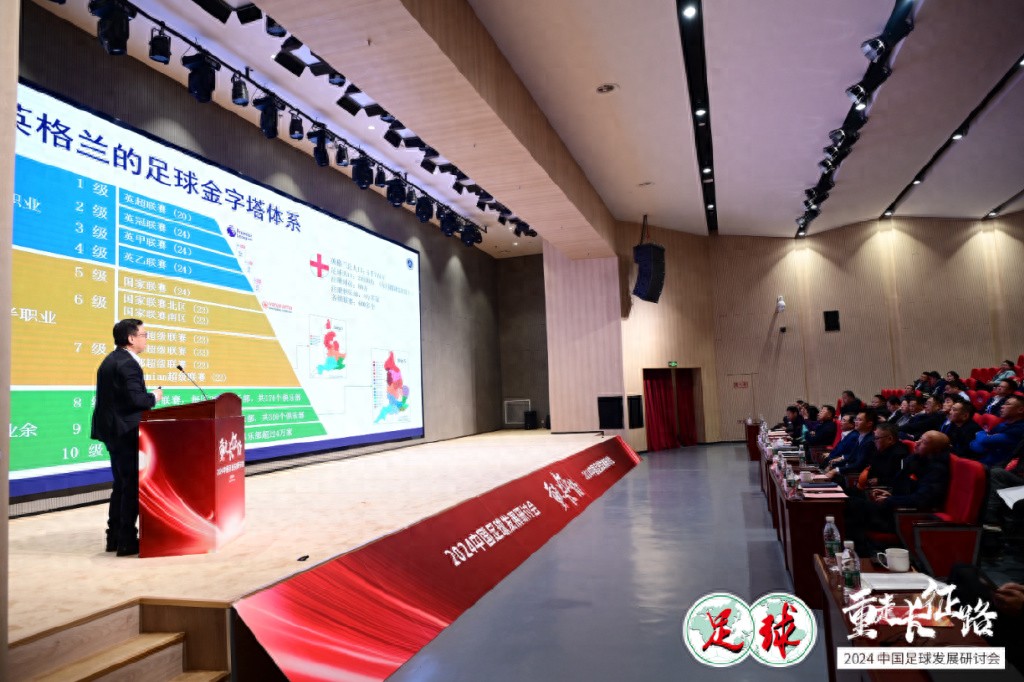
Reporter Nan Nan reports On Saturday night, Nanpu SC in Nanning, Guangxi Province, moved into third place in the league standings after beating a strong opponent in a crucial match in the Nanning Super League. Investor Mao Xu is very satisfied with the result of this game. After the game, he gave the players bonuses on the spot as a reward. Although it is a game organized by the Nanning Football Association, for Mao Xu, winning the championship can get the ticket to the Guangxi Football Super League. For him, this means finding a bigger sponsor to address the team's funding sources on the one hand and reduce the pressure on his own investment on the other.
A total of 13 teams will participate in the 2024 Nanning Super League, all of which are amateur teams. The reason why it is called a team is because most of the participating teams are loosely structured and do not have a strict contract binding management system, so they cannot be called clubs. At the "Re-taking the Long March Road - China Football Development Seminar" just held by this newspaper in Xi'an, Tang Xigang, chairman of Shenzhen Xinpengcheng Club, pointed out that the most lacking thing in Chinese football is grassroots community clubs.

As an investor in grassroots amateur teams, Mao Xu very much agrees with this point of view, "Our team was only established in July last year, strictly speaking, we are just a team, not a club, and the players' salaries are settled according to the number of games, and there is no strict management system." However, we have already started to build our youth and women's teams and improve the structure of the team step by step. ”
In fact, although Namp SC only train before the game, they are already a high-level team in the grassroots amateur team. Most of the teams in grassroots football in China are still in a state of no coach, no training, and no competitive requirements. Wang Yawei's team is in Wuhan, and there is a "game" once a week, with no coach, no referee, and the score is all memorized. After the game, teammates sometimes ask Yawei what the score is. The weekly "game" is almost all of Wang Yawei's amateur football. And people like him are all over the country.
In China's football pyramid system, under the three professional leagues of the Chinese Super League, the Chinese League A and the Chinese League B, there is an amateur Chinese Champions League, with 64 teams participating. But in Mao Xu's view, the China Champions League is the semi-professional league of Chinese football, which is already their current unattainable goal.
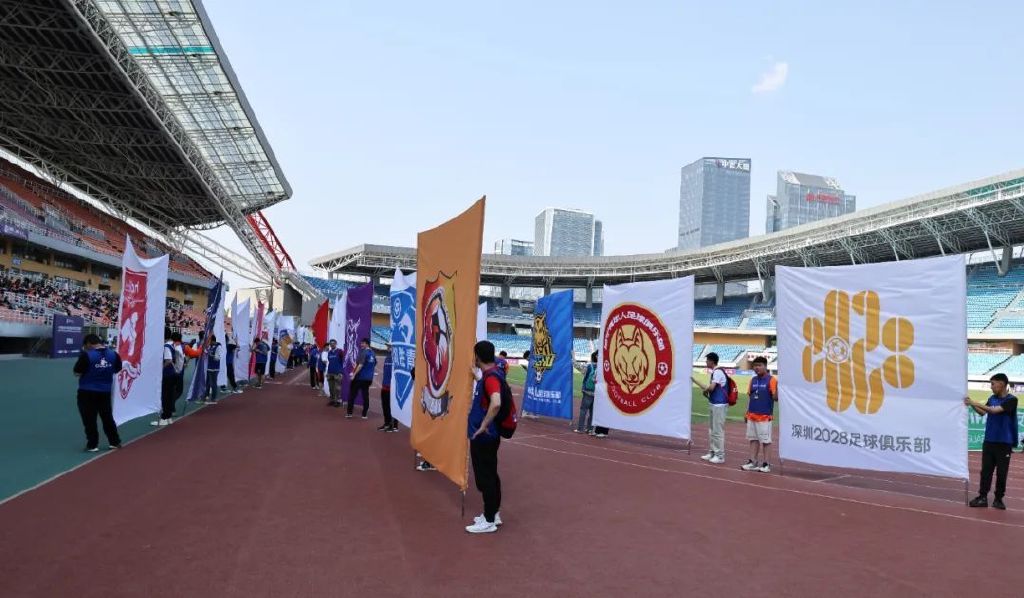
Football takes time to settle down, and it's a truth that almost everyone understands. Not everyone knows what it takes to go from an amateur team to an amateur club. Mao Xu didn't know either, but he was willing to give it a try. He majored in sports industry in college, and he has his own set of operating systems, but due to lack of funds, he can't make too fast progress. In the 2024 season to participate in the Nanning Super League, Nanpu SC only received the sponsorship of the registration fee, and all other expenses were paid by Mao Xu personally.
Funding is a hurdle for amateur teams to move towards the club model. At present, most of China's grassroots amateur teams have a loose composition and high mobility. Lack of funding also means a lack of attraction for high-level players, and it also means that teams are unable to provide a stable platform for high-level players to participate. In this regard, Mao Xu was also very helpless. The reality is that he can't just rely on love and invest at any cost.

In order to encourage the development of grassroots amateur teams and clubs, many cities led by 16 key cities for football development are thinking, and the Xinjiang Football Association's pilot plan in Kashgar provides some ideas. In the view of Xu Ming, chairman of the Xinjiang Football Association, it is precisely because of the high mobility of grassroots amateur teams that the establishment of clubs in the community can better promote the development of social clubs. "The community needs to team up with the people who play football in the community, and they are the basic unit for participating in the local league." Xu Ming said.
Xu Ming quoted Takeshi Ono, deputy director of the technical committee of the Japan Football Association, as saying: "Football is a catalyst for social happiness. Based on this understanding, the Xinjiang Football Association attaches great importance to the development of grassroots clubs in the community, and Xu Ming believes that this will contribute to grassroots social governance and community harmony. In the concept of Xinjiang Football Association, the perfection and strength of community clubs and the strength of grassroots football associations are the keys to the success of developed football countries. Building a sound and strong community club is also the most fundamental work of the grassroots football association.
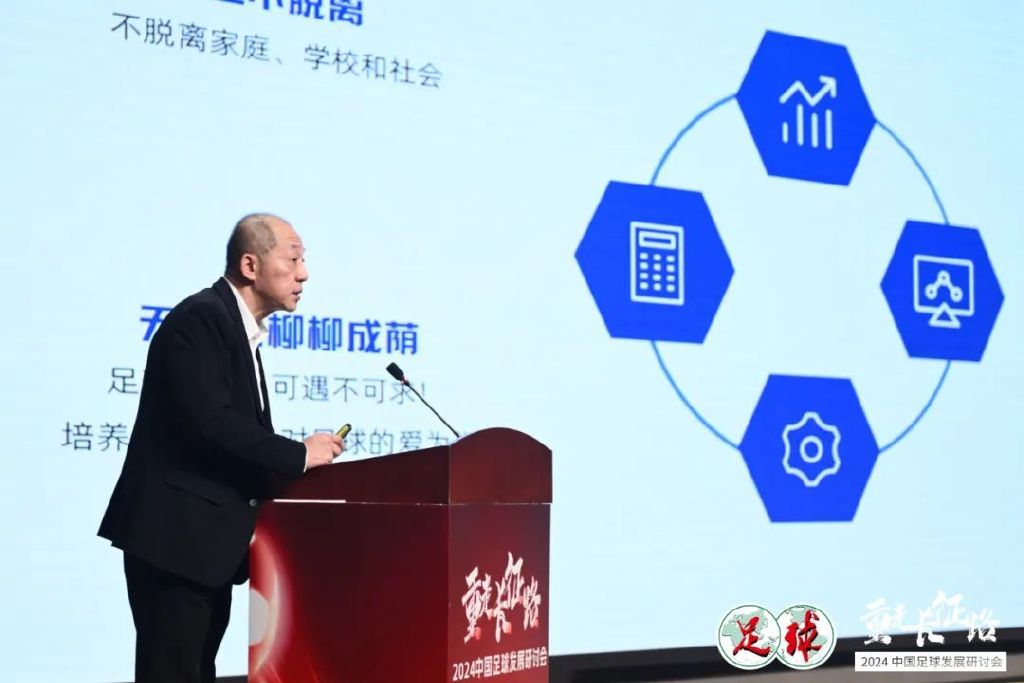
In the development plan of the Xinjiang Football Association, community clubs are not only carriers for adults to participate in amateur competition training and competition, but also assume the function of youth football training, so that young people can participate more in the operation system of amateur clubs. The linkage between grassroots football and youth football, as well as between amateur clubs and campus football, is one of the priorities of the Xinjiang Football Association's current pilot work in Kashgar.
At present, the main contents of the Xinjiang Football Association's guidance for community clubs include: formulating access standards for amateur clubs and improving the construction of amateur clubs; Formulate youth training plans for amateur clubs; Establish a sound competition system; Formulate a detailed development plan for county-level associations. In fact, the work of the Xinjiang Football Association in Kashgar is to guide amateur teams to gradually develop into amateur clubs, and play an important role in this process.
In the Shenzhen-Kashi Base Strategic Plan (2025-29) and the Kashgar Football Deepening Reform and Development Plan, the Xinjiang Football Association's goals include the creation of youth football and youth leagues, as well as social football and adult leagues, with each team playing between 20 and 40 games a year. Taking into account the weather influence caused by the geographical location, it is basically possible to play one game every seven to ten days in a suitable time period for the game.
At the same time, relying on the Shenka base, the Xinjiang Football Association has organized a number of coach training courses and trained more than 800 coaches, who will sink into community clubs and campus football in the future, on the one hand, to improve the technical and tactical level of community clubs and campus football players, and on the other hand, to provide a guarantee for them to participate in various competitions.

"If we can beat Gui Chao, we can fight, if we can't beat us, we will take our time, for us, it is more important to persevere." Nanpu SC investor Mao Xu said. Like many amateur teams, Mao Xu's team faced the first question of survival. Only by living can we have a chance to move forward. At present, the channel for the upward promotion of amateur teams across the country is relatively single. In Nanning, Guangxi, the Nanning Super League champion has the qualification to participate in the provincial league Guangxi Super League (Gui Super League) next year. The team that won the championship of the Gui Super League has the qualification to participate in the Champions League in the next year. Regardless of other factors such as the acquisition of clubs, this is currently the only way for amateur teams to reach the professional league. It takes a long time and the competition is fierce, and many amateur teams gradually disappear in the process of long-term competition.
Therefore, improving the construction of amateur clubs is one of the key factors in the construction of China's football base. Only when amateur clubs can operate benignly and survive long enough in the competition can they continue to rely on their own linkage with youth football to cultivate football talents, can they continue to absorb high-level players, and can they continue to move forward to the platform of professional leagues. In fact, there is no shortage of precedents for advancing from amateur to professional football.
Qingdao City Football League is a city league with a relatively complete competition system in China. Relying on the opportunity of the pilot cities of the AFC's "China Vision" plan in 2005, after nearly 20 years of improvement and development, Qingdao City Football League has come out of Qingdao Huanghai, a team that has participated in the Chinese Super League. This season's Chinese League A team, Qingdao Red Lions, is also a team that has climbed up step by step from the fourth division of Qingdao City Football League. In addition, Qingdao Kunpeng has participated in the China Second League, and Qingdao May Wind Club and Qingdao Laoshan Gangfan have both qualified for the 2025 Chinese Football Association Cup.
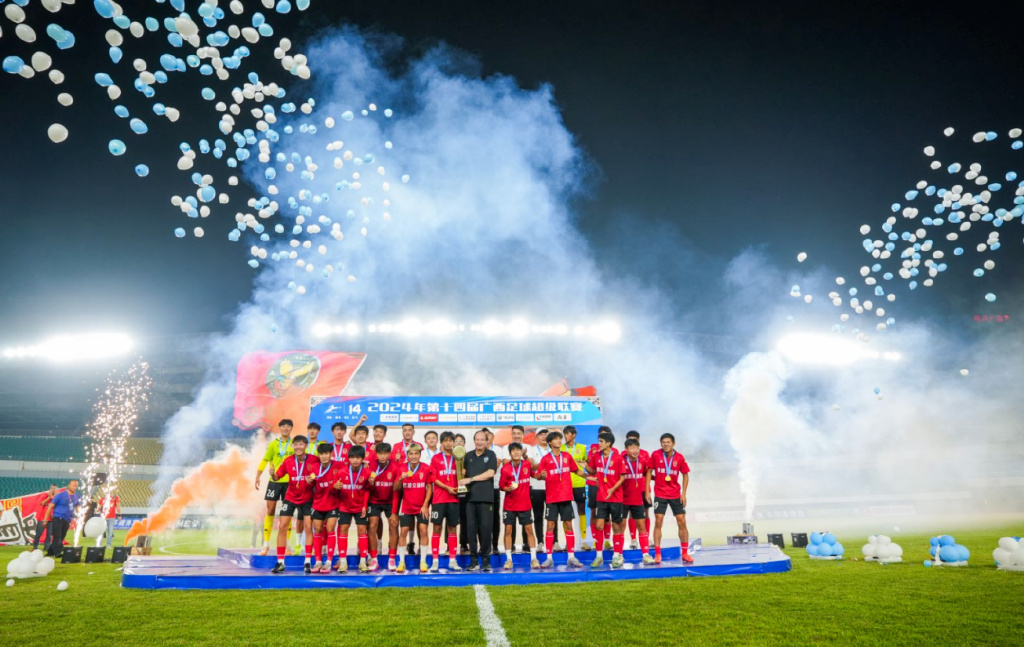
In addition to Qingdao, the Guangxi Super League is also a major source of professional clubs in China. Nantong Zhiyun, which was relegated from the Chinese Super League in the 2024 season, was formerly known as Guangxi Longguida, the champion of the Guangxi Super League. Guangxi Pingguo Hayi, the predecessor of the Chinese League club, is Guangxi Baoyun, and Guangxi Blue Airlines and Guangxi Hengchen, who participated in the Chinese League B this season, have been promoted to the professional league through the Guangxi Super League. At present, the Guangxi Football Super League adopts the home-and-away system of the whole autonomous region, and has opened up the upward channel from the municipal league to the Chinese Champions League, which is the most mature and perfect provincial amateur league at this stage.
In addition to Qingdao City and Guangxi Zhuang Autonomous Region, Hubei Youth Star and Guangdong Mingtu have been deeply involved in youth training for many years, gradually forming a perfect echelon level, and using local youth training to nurture the club's first-line teams.
Although many teams have been able to break through from amateur competitions to professional leagues, in Tang Xigang's view, Chinese football still lacks regional leagues divided by regions, and compared to the mature regional league systems of England, Spain and Japan, we are still blank in this aspect. However, England, Spain and Japan are relatively small, while China has a vast geographical area, from a practical point of view, improving the provincial competition structure and broadening the upward path of amateur clubs seems to be more in line with the current situation of China's football development.

The base of Chinese football is the community, and when it comes to the community, it is impossible to avoid campus football. The campus is naturally a community, and even many communities are formed around the campus. From 2015, when the six national ministries and commissions issued a document to vigorously develop campus football, to 2024, when the national ministries and commissions issued a document to further develop campus football, in the past ten years, the football audience on our campus has been qualitatively improved. Taking Yingde City, which is under the jurisdiction of Qingyuan City, Guangdong Province, as an example, a district and county-level administrative district has 24 national campus football characteristic kindergartens, and the number of kindergartens is in the leading position of the same level administrative region in the country. Qiaotou Town Central Primary School in Yingde City, under the leadership of Secretary Lin Bai'an, overcame financial difficulties and made every effort to renovate the new football field.
As the development of school football enters its second decade, the field is no longer the biggest constraint on the development of campus and community football. According to the Football City Office, Qingdao Chengyang District has 2.65 11-a-side football fields per 10,000 people, which is more than 3.0 in Wuhua County, Meizhou, the hometown of football king Li Huitang. In the evaluation of national youth campus football characteristic schools, venue is one of the hard indicators. It is precisely because the venue is guaranteed that the development of campus football is more restricted by the lack of high-level coaches and high-level competitions. In fact, this is one of the problems that grassroots community clubs need to face.
At present, there are very few high-level coaches on campus. The campus has its own particularity, the entry threshold is high, and professional players who grew up under the system in the past need to go through a series of examinations and assessments to obtain the qualification to enter the campus, which is too difficult for professional athletes.
2024 Guangzhou 10th Primary and Secondary School Football League Men's High School Super Group Champion Science City Middle School Coach Peng Jinbo and Huang Donghong, with AFC A and B coaching certificates, they were transferred to Guangzhou Sports Vocational College after the restructuring of the Guangzhou Football Association, and the identity of in-service teachers has given them a solid guarantee for entering the school to provide systematic high-level team leadership practice. However, examples like Peng Jinbo and Huang Donghong are rare among many high-level coaches.
Li Ying, the person in charge of the ByteDance Football Public Welfare Project, also put forward suggestions when sharing the "County Campus Football Experience": it is necessary to continuously and vigorously strengthen the level of grassroots coaches, and all normal universities and sports colleges should vigorously train young coaches.
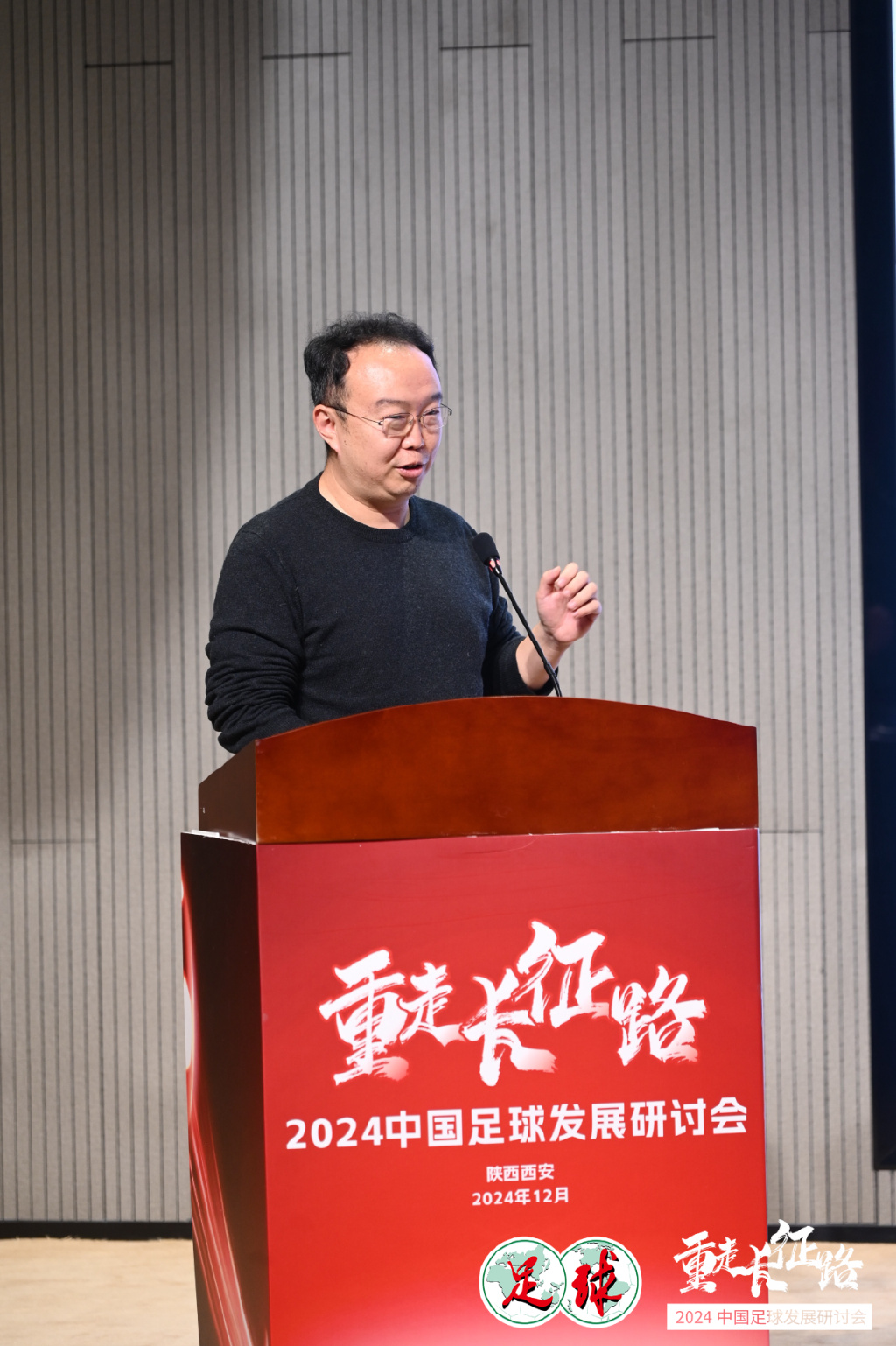
In addition, school soccer players also face the problem of ascending paths. At present, there is a lack of connection between our campuses and professional clubs, and solving the problem of "retirement at the age of 12" has long become the consensus of the Chinese football community. In fact, children who make it to the age of 12 still face a choice. Due to the lack of access to professional clubs, many children who were originally at a good level were unable to receive high-level training in secondary school, so they missed the best growth period and had to continue on the road of school football. Some schools have taken the initiative to close the road to professional clubs, wasting their own extremely limited football talent resources.


Wonderfulshortvideo
Did you get it? 🤔😅


Haaland’s movement 🥵


Which counterattack is


When you use your girlfriends shower 🚿 @Emily Bourne @LUSH


Neymar highlights neymar edit neymar lamine yamal celebration


Arsenal 1-0 chelsea havertz goal


Lamine Yamal wizardry 🪄








 Links
Links
 Contact
Contact
 App
App


